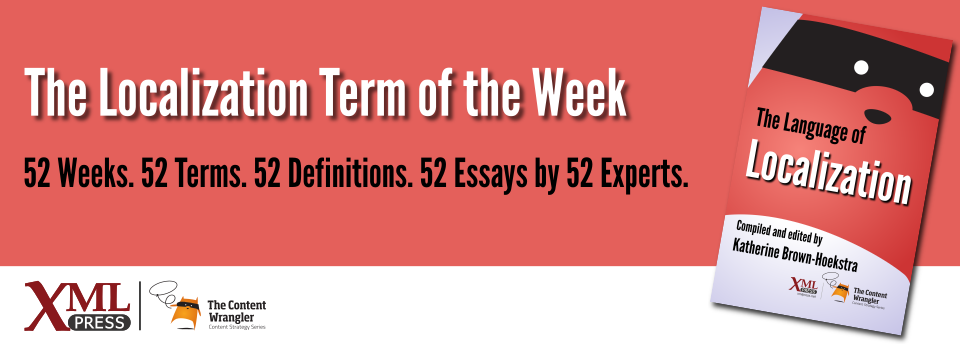What is it?
The act of converting verbal (spoken or signed) communication from one language into another.
Why is it important?
Written translation and spoken or signed language interpreting are two very different, but related, professions. Localization specialists source solutions for diverse needs, usually for people who are not specialists in the fields of translation and interpreting. When a requesting party asks for translation services, they might actually need interpreting services instead. For example, a marketer organizing a company event might request translation for the CEO’s presentation. A localization specialist might assume this means translation of written slides, but later finds out the person requesting the service actually needs spoken language interpreters. Because these requests are frequently confused, it’s important to know how to handle them when they occur.
Why does a technical communicator need to know this?
Within the field of interpreting, there are three types of interpreting services that businesses most frequently require:
- Conference interpreting: live interpreting of a presentation or a webinar, usually at a company’s user conference or internally run event.
- Escort interpreting: a typical practice for business discussions or negotiations where the parties do not share a common language and, therefore, need an interpreter. This is quite common for dealings between Japan and Western countries, for example.
- Remote interpreting: used for shorter conversations, such as phone calls or video calls, in which parties do not share a common language and communicate through an interpreter who is in another location.
Each service has different types of service providers, is suited to different use cases, and has different billing methods.
Finding and hiring interpreters differs greatly from sourcing translation services. Conference and escort interpreters are usually booked directly in the country where they are needed, through a professional association such as AIIC.net[AIIC], although they can be booked via agencies that work with AIIC interpreters and provide equipment rental. These services are usually booked for the day or, less commonly, by the half-day, with multiple interpreters being booked on a rotation to ensure that a fresh interpreter is continually available. Remote interpreting is billed by the minute and offered by telephone and video interpreting companies.
When businesses rely on their own bilingual employees as interpreters, this can create a high risk and opportunity cost. Professional services are more reliable, but interpreters should be briefed in detail in advance to provide optimal quality[Kelly 2012][Pöchhacker 2015].
References
- [AIIC] International Association of Conference Interpreters: The International Association of Conference Interpreters is the only global association of conference interpreters; it brings together more than 3,000 professionals from every continent.
- [Kelly 2012] ] Found in Translation: How Translation Shapes Our Lives and Transforms the World: Kelly, Nataly and Jost Zetzsche. This book provides extensive insight into many different types of interpreting and translation.
- [Pöchhacker 2015] Routledge Encyclopedia of Interpreting Studies: Pöchhacker, Franz (Editor). (2015). Reference guide for interpreters that provides a list of key concepts and issues in interpreting.

